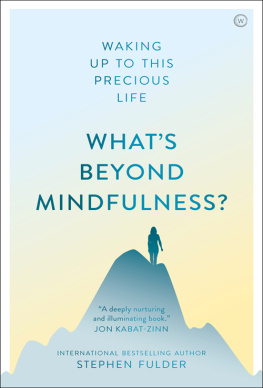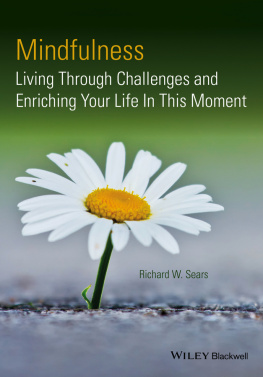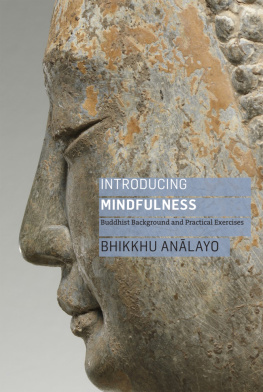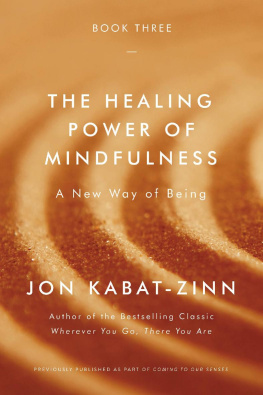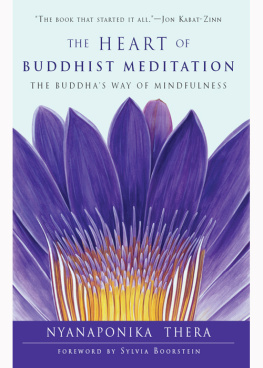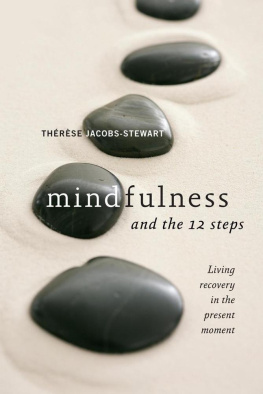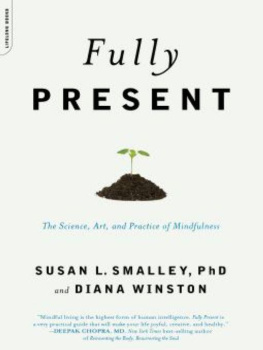The way I use the word mindfulness, there is nothing beyond it, because it is shorthand for deeply embodied wisdom and its myriad expressions in life. But in this deeply nurturing and illuminating book, Stephen Fulder unfurls the universe that gave birth to the most refined articulation of mindfulness on the planet, and how it can be understood and nurtured both from the more traditional Buddhist perspective, and from a more universal and inclusionary perspective, for the benefit of all. Stephens life trajectory and choices are an embodiment of his fierce love of what is most sacred, and most easily missed.
Jon Kabat-Zinn, Professor Emeritus,
Creator of MBSR (Mindfulness-Based Stress Reduction),
author of Full Catastrophe Living and Falling Awake
This book is filled with all the wisdom and compassion Stephen has gleaned from years of teaching, healing and peace work in Israel and Palestine.
Jack Kornfield,
author of A Path With Heart,
The Wise Heart and many other books
Stephen Fulders book marks a milestone, going deeper than the application of mindfulness as a body-mind practice to relieve stress and pain. He points readers toward the exploration of a full range of the human experience, offering fresh perspectives on such themes as ethics, work, money, generosity, the heart, daily wisdom and the significance of waking up. Practical and down-to earth, Whats Beyond Mindfulness? draws upon the Buddhas teachings, Western insights and Stephens first-hand experiences. A worthwhile and fascinating read, the book provides explanations and reminders about ways to develop a contented, adventurous and fulfilled life. A fine book. May it reach the hearts of many.
Christopher Titmuss,
well-known Buddhist teacher, author of
Light on Enlightenment and many other books
Stephen Fulder, PhD, is the founder of the Israel Insight Society (Tovana) and one of Israels leading spiritual teachers. Drawing on 40 years of deep personal experience of vipassana/mindfulness meditation and dharma practice, he has, over the last 20 years, guided thousands of people in exploring Buddhist teachings, practising meditation and rediscovering the magic of the moment. He has also written 14 books on health-related subjects.
WHATS BEYOND MINDFULNESS?
WAKING UP TO THIS PRECIOUS LIFE
STEPHEN FULDER
This edition first published in the UK and USA 2019 by
Watkins, an imprint of Watkins Media Limited
Unit 11, Shepperton House
8993 Shepperton Road
London
N1 3DF
Design and typography copyright Watkins Media Limited 2019
Text copyright Stephen Fulder 2019
Stephen Fulder has asserted his right under the Copyright, Designs and Patents Act 1988 to be identified as the author of this work.
All rights reserved.
No part of this book may be reproduced or utilized in any form or by any means, electronic or mechanical, without prior permission in writing from the Publishers.
1 3 5 7 9 10 8 6 4 2
Typeset by JCS Publishing Services Ltd
Printed and bound in the United Kingdom
A CIP record for this book is available from the British Library
ISBN: 978-1-78678-198-7
www.watkinspublishing.com
INTRODUCTION
When I was a kid, I remember sensing that life was one big mystery. I read a lot of fantasy books, my imagination wove vast worlds and I saw magic in everything and every place; the way apples grew on trees, the way both myself and the butterflies enjoyed the spreading aromas of a lilac bush, and the way people walked in the streets of London. I had one serious problem that I knew that one day I would have to be an adult and all that magic would disappear. It was a terrifying thought. Adults, it seemed to me, spent most of their lives worrying and stressed, were never satisfied with what they had (especially money), were busy all day, or just worn out from the busyness. They seemed largely nervous or defensive, living their lives on automatic pilot. Moreover they were continually complaining that they were unhealthy and unhappy, and seemed to rely on medication, doctors or psychologists just to keep going. Now, I am an adult.
We all wish we could put down the loads we are carrying through life. There are internal loads such as anxiety, lack of joy, restlessness or a judgemental mind. Or external loads such as not getting what we want or relationship issues or our bodies that seem to betray us. But it is actually our minds that are loaded. For life is constantly changing and not in our control, but how we face change is entirely on our shoulders and mostly feels like an endless struggle. The loads seem quite stuck onto us, as if they have become part of us. This is because they dont get dropped by wishing to be light and free, nor by thinking about them, nor by imagining them to have dropped, nor by avoiding them. The stress is so integral to our life that trying to clean it we find we are always washing ourselves with dirty water. We need something different. As Einstein once said: You cant solve problems with the same mind that created them.
This is where wakefulness, mindfulness, and spiritual practices are important. They can make a shift at the deepest level, in the way we are with ourselves, with our experiences and with the world, moment by moment. And gradually something extraordinary happens. We discover that our very nature is peaceful, joyful and connected, but we could not see it because it was obscured by beliefs, stories, memories, narratives and habits that filled our consciousness with clouds and burdens. Once the clouds are seen as unreal and not solid, we realize the sun is still there and it will shine out again. And in its light our view of reality expands way beyond the boundaries that we thought were the world. We are changed and life is lived differently.
In the same way, we discover that the magic that we experienced as a child can actually never disappear. I neednt have worried as a kid. Magic is the way of nature. Though it appears to be covered with layers of mental structures, we do not have to dig too deep to find underlying joy, peace and kindness. We can look reality in the eyes and welcome everything it brings. We can find endless intimacy and great warmth in our relationship with ourselves and with others whether they are close to us or not. We can live a wise inner life of reflection, creativity and inspiration, a life with wide horizons. Does that sound too idyllic? Well, it is not. It all depends on how we see ourselves and our lives a clarity can be learned and a transformation developed, which is the subject of this book.
The book is grounded in Buddhist teachings, and how they can be applied meaningfully to our outer and inner life. But this is not a Buddhist book. The Buddhist character of the text is inherent, invisible and lifting us up from underneath not pulling us from above. Paradoxically, that is exactly the way the Buddha himself appeared to have taught and asked his monks to teach. The Buddha wasnt a Buddhist. But the vast teachings of Buddhism are an absolutely vital resource, a practical treasure trove; simple, direct, non-mystical and non-religious in essence, which has reached us today intact and not covered over by layers of religious obscurations. Besides, after 40 years of practice and 20 years of intensive teaching, this is also the ocean in which I swim.
We are in a new phase of an acceptance and an interest in Buddhist-inspired teachings in the modern world and the West. In particular, mindfulness, a key Buddhist practice, is extremely well known and has been written about intensively. It is having a major impact in Western culture. For example, it has changed the face of psychology with the rise of Cognitive Behavioural Therapy (CBT), and impacted health care, education, business practices and even politics (apparently a quarter of UK parliamentarians have practised mindfulness). However, mindfulness is embedded in an extremely rich teaching. This book recruits the whole teaching and is way beyond just mindfulness. Though there are currently a large number of books on Buddhist teachings and mindfulness, this book may reflect the next generation of such literature. It is not about bringing new and Eastern teachings into the modern world, it is not even about the teachings. It is about embodying them. It does not describe a horse and explain horse riding. It shows that you are already riding it.
Next page
